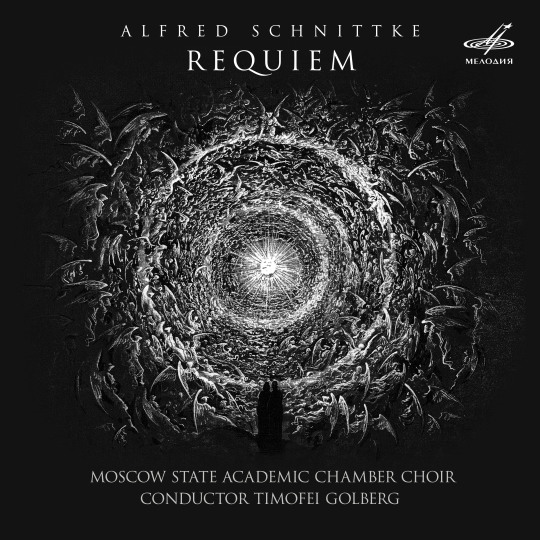#Tuba mirum
Explore tagged Tumblr posts
Text
Tuba Mirum from Cantus Aeternus Ziyu Che, HOYO-MiX
#genshin#genshin impact#cantus aeternus#sea of bygone eras#autoharmonic music box#ziyu che#plays from the autoharmonic music box (tuba mirum)
7 notes
·
View notes
Text
i have already made peace with the fact that ill never find the perfect d minor requiem (tempi-wise). but bernstein's comes pretty close <3
#also it has jerry hadley my beloved and maria ewing <333 the soloists are really Good which doesnt happen often#(the bass is a bit too baritonish for me but its nothing jarring)#introitus is too slow.#kyrie is great. could be a little faster but it's perfectly fine like this too.#dies irae is PERFECT#tuba mirum is great too tho i could also see it also work with a little faster tempo but nothing wild#rex tremendae is great tho i also dont mind when its a little slower (and i very rarely say this about mozart)#ricordare is just right too. any slower and it would be unbearable lol#confutatis is PERFECT#lacrimosa is HORRIBLE. it SHOULD be slow but lenny is really just taking the piss here.#karajan and abbado go a tad too fast for me. böhm's is fine tho the rest of his requiem is way too slow for me#domine jesu is perfect#and i dont usually much care for the rest of it but its fine too#forever bitter and heartbroken over the unfinished amen fugue </3
4 notes
·
View notes
Text

His favorite music was Giuseppe Verdi's Requiem, "In Paradisum" from Faure's Requiem, "Habanera" from Georges Bizet's Carmen, Richard Strauss' Vier Letzte Lieder and "Tuba Mirum" from Wolfgang Amadeus Mozart's Requiem.
Source IMDb
105 notes
·
View notes
Text
The Classical Music of Ride, Part I: Mozart’s Requiem

You can’t trust anything or anyone in Ride. People aren’t who they seem to be. Every action, every event is just a cover for something else.
Is Morse one of the idle rich? An Oxford drop-out? A taxi-driver's son from Lincolnshire? A man who’s just finished a prison sentence? A policeman?
Long post....
Is Bixby the filthy rich head of a gambling empire? Is he just a front for Harry Rose’s criminal empire? Is he Charlie Greel looking to win back Cathy or Joss Bixby looking to seduce Kay? Is he even himself or is he his hidden, evil twin Conrad?
Are the denizens of Lake Silence really Morse’s friends—sheltering him after the storm of Blenheim Vale and prison? Or are they a bunch of dysfunctional philanderers and addicts? Even worse, are they suspects? Criminals?
Using Mozart’s Requiem in this episode must have absolutely delighted the music staff because while a great part of its fame and mystique rests on the sheer accumulation of stories and legends that have grown up around it, almost none of those tales can be proven—and all of them have been challenged at some point. You really don't know what's real and what's not—right down to the music itself.
Was the anonymous “stranger cloaked in gray” who gave him the commission the only sponsor Mozart ever saw? Or did he at some point become aware that the Count, Franz von Walsegg, was paying for the work? Some people today are shocked to hear that Walsegg planned to pass off the Requiem as his own work—as a tribute composed in memory of his dead wife—but that was a fairly common practice for the aristocracy of the time. It was considered slightly shady, but the proper thing to do was to just politely nod and go along with it.

Did Mozart, his mind disturbed by illness in his final days, truly come to believe that he had been poisoned and that he was writing the requiem mass for his own funeral? Or was that tantalizingly dramatic detail added by his widow Constanze to drive up sales of the score after the his death? The couple was catastrophically bad at managing money and when her husband died, the widowed Constanze was left with massive debts and two small children. She needed to maximize any possible source of revenue.
Her story certainly captured the public imagination. Pushkin took that little tidbit about writing his own funeral mass and wrote a very short but thought-provoking play in which he cast Mozart’s contemporary Salieri as the envious poisoner and Mozart himself as a childish, spoiled, and petty genius. Peter Shaffer later adapted Pushkin’s work into the play, and later film, Amadeus. A surprising number of people today believe Amadeus to be not the work of imaginative fiction that it is, but rather a completely factual story of Mozart’s life and death.

Mozart worked on the Requiem up to the day he died at the age of only 35. It was the last piece he worked on. Most scholars believe the manuscript we have contains not only the last music he ever composed but possibly the last words he ever wrote.
As far as authorship is concerned, we know for certain that Mozart himself completed “in skeleton” the Introit, the Kyrie, and almost all of the Sequentia (Dies irae, Tuba mirum, Rex tremendae, Recordare, Confutatis). The last portion of the Sequentia, the Lacrimosa, was completed was the up through the first 8 bars.
The last words that he actually wrote were "Quam olim da capo” — which instructed the musicians to repeat the "Quam olim" fugue of the Domine Jesu from the beginning. In yet another mysterious twist to the story of the Requiem, these actual last words were stolen—quite literally by tearing them from the manuscript—while the score was displayed at the 1958 World’s Fair in Brussels. They are still missing.
We are certain about the authorship of parts because we have the autograph manuscripts—the music in Mozart’s very own hand. The big question, however, has always been, how much the the rest of the Requiem can we consider his? The parts that were completed “in skeleton” basically had all of the “important” notes in place. Things missing include details like doubled parts that could fairly easily be extrapolated from what he had written.
In order for Constanze to receive her money from Walsegg, however, she needed to make it appear that Mozart had completed the work entirely or almost entirely himself before his death. Not only would this ensure full payment from Walsegg, it would also promote sales of the score to the public later. A work written by Mozart alone would far out-sell a work written by Mozart and “Mr. Competent-But-Lesser-Known-Composer.”
Today we know that at least two of Mozart’s students were involved in finishing the piece, with the majority of the work being done by Franz Süssmayr. What we don’t know, however, is how much of the completed work is purely theirs and how much came from Mozart’s notes and verbal instructions.

Some versions of the story indicate that Mozart gave detailed deathbed instructions and left many “little scraps” of paper with details of how to complete the composition. Other versions claim that this talk of “little scraps” is simply more of Constanze’s effort to maximize Mozart’s contributions and minimize those of others.
Regardless, we know that the completed Requiem was eventually sent (with Mozart’s counterfeited signature!) to Count Walsegg and dated 1792—which is rather odd in retrospect given that it was well-known that Mozart had died on 5 December 1791. It's always been yet another mystery.

The two excerpts used in Ride are the Lacrimosa, during the opening titles and establishing scenes, and the Confutatis, which Morse is listening to on his record player as he splits wood outside the lakeside dacha.
The Latin text of the first reads:
Lacrimosa dies illa, Qua resurget ex favílla Iudicandus homo reus: Huic ergo parce, Deus:
The equivalent translation (i.e. not the one used at mass, but a more literal translation) is:
Tearful [will be] that day, on which from the glowing embers will arise the guilty man who is to be judged: Then spare him, O God.
So Ride starts with tears and guilt.
I’ve always found it interesting that this text doesn’t even try to claim innocence, instead it very clearly asks that the guilty be shown mercy.

The Latin text of the second reads:
Confutatis maledictis, Flammis acribus addictis, Voca me cum benedictis.
The equivalent translation is:
Once the cursed have been silenced, sentenced to acrid flames, Call me, with the blessed.
This text always strikes me as coming almost from a child’s point of view. Basically one interpretation is, “Come and get me once you’ve taken care of all the bad guys.” I'll leave you to draw your own conclusions as to how that might apply to Morse post-Blenheim Vale and prison.
Next week: The Classical Music of Ride, Part II: Rigoletto or “Why keeping a person’s entire existence a secret leads to Bad Things.”
Special Bonus Section!!!
Parts of Mozart’s Requiem used in Endeavour:
Dies irae: completed by Mozart in skeleton* S4E4: Harvest (~2 min) (~3 min)
Rex tremendae: completed by Mozart in skeleton* S9E3: Exeunt(~1 h 11 min)(~1 h 11 min)
Confutatis: completed by Mozart in skeleton* S3E1: Ride (~5 min)
Lacrimosa: completed by Mozart in skeleton* through measure no. 8 S2E3: Sway (~0 min)(~1 hr 24 min); S3:E1 Ride (~1 min)
Lux aeterna: Not in Mozart’s MS; however Süssmayr reuses the Requiem aeternam written by Mozart almost note-for-note with just the different text S9E3: Exeunt (~31 min)
*skeleton: means full vocal and continuo parts, notes for prominent orchestral parts and musical bridges
46 notes
·
View notes
Text
Papa’s playlists - music headcanons
Sometimes when I listen to music I mentally associate what I’m listening to the Papas, so I thought it would have been fun to imagine a 10 songs playlist for/of each Papa. I have chosen the songs by their personalities, the kind of music they have done and the general vibes I get when I listen to the songs.
Primo:
I see him sitting on his couch by the fire, immersed in his voluminous, rich vestments. He can listen to the heaviest doom metal tune without moving an inch of his body, fully immersed in understanding the lyrics, but 70s rock always brings back his old memories of when he used to throw small parties in his chamber whenever the Beatles or his favorite bands released a new LP.
The Beatles - Come together
Black Sabbath - Iron Man
Mayhem - Freezing moon
The Rolling Stones - Start me up
Candlemass - Bewitched
Bathory - A fine day to die
Mercyful fate - Evil
The animals - House of the rising sun
Slayer - Seasons in the Abyss
Diamond Head - Am I Evil?
Secondo:
He has two sides: the old-school metalhead and the devoted enthusiast of good old symphonic music. He prepares himself a cigar and settles at his desk, embracing the darkness like the nocturnal creature he is, to work on papers or perhaps write some lyrics inspired by his favorite arias. In his playlist, you can always find something classy followed by something extremely heavy.
Led Zeppelin - Kashmir
Slayer - South of Heaven
Venom - Don’t burn the witch
Giuseppe Verdi - Dies Irae/Tuba Mirum
Deep Purple - Perfect Strangers
King Diamond - The family ghost
The Doors - Riders on the storm
Guns and Roses - Coma
Bobby Vinton - Blue velvet
Antonio Vivaldi - Four Seasons
Terzo:
Ah, Terzo. Whether he's completing his nighttime skincare routine, getting dressed for a mass, preparing for a date, or simply relaxing in his chambers with a good wine, he always has a record playing in the background. He's not a headbanger, but he likes to keep the tempo with his hands. He taps his fingers on his thigh to match the drum tempo of most rhythmic songs or moves his hands softly to the sound of the mellower ones, like when he listens to "Barcelona," adjusting his hand movements based on the virtuosity of the voices.
Candlemass - Well of Souls
The struts - Kiss this
Metallica - Until it sleeps
Metallica - For whom the bell tolls
Kreator - People of the lie
Freddie Mercury feat Montserrat Caballe - Barcelona
David Bowie - Starman
Pentagram - Sign of the wolf
Sepoltura - Dead embryonic cells
Mercyful fate - Witches dance
Copia:
I can totally picture Copia putting on something groovy like "Stuck In The Middle With You" while attempting to cook something, swaying his hips to the rhythm and inevitably either burning whatever is in the pan or creating a mess on the counter by dropping bottles and food.
Alice Cooper - Poison
Iron Maiden - Run to the hills
Steppenwolf - Born to be wild
Dead or Alive - You spin me round
Black Sabbath - Paranoid
Judas Priest - Painkiller
The Rolling Stones - Sympathy for the devil
Stealers wheel - Stuck in the middle with you
The Darkness - Love is only a feeling
Bon Jovi - You give love a bad name
Nihil:
An old-school rocker. He would pick you up in his car with Led Zeppelin playing at full volume, take you to a bar where he puts on your favorite song in the jukebox, and by the time you come back from the toilet, he's kissing some random girl right at the bar counter. He would later apologize, claiming he was just drunk and thought that was you… a red flag you'll ignore.
The Doors - Touch me
Led Zeppelin - Whole lotta love
Elton John - Tiny dancer
Ozzy Osburne - Crazy train
Deep Purple - Child in time
Deep Purple - Hush
Jefferson airplane - White rabbit
Elvis Presley - Suspicious minds
The Rolling Stones - Paint it black
The Beatles - Helter Skelter
#the band ghost#ghost band#ghost headcanons#papa emeritus i#papa emeritus ii#papa emeritus iii#papa emeritus iv#copia#headcanon#the band ghost fanfiction
59 notes
·
View notes
Text
"When therefore the Judge takes His seat
Whatever is hidden will reveal itself.
Nothing will remain unavenged."
- Inquisitor Dikke

I'd argue that Dikke has one the best character lore out there in Reverse 1999.
(Also the quote was from Mozart's Requiem 'Tuba Mirum', I thought it fitted nicely with Dikke tho)
#my art#reverse 1999 dikke#reverse 1999#sketch#ink#reverse 1999 fanart#illustration#artists on tumblr#traditional art#rough sketch#drawing#pen#dikke
41 notes
·
View notes
Text
Yesterday I was standing at a crosswalk waiting for the light to change and thinking about the Tuba mirum movement from the Mozart Requiem (since I am learning it for solo cover auditions) and then someone rode past me on a bike carrying a tuba
#it was eerie but neat#choir stuff#btw tuba in latin means trumpet#the tuba as we know it postdates mozart by nearly a century#and the last trumpet in the mozart requiem is in fact a trombone#a really beautiful trombone solo
8 notes
·
View notes
Text
getting drunk but it's ok because i'm listening to chopin and shit... just put on giuseppe verdi's tuba mirum and this is. freaking. epic.
3 notes
·
View notes
Text

Tracklist:
Requiem: 1. Requiem • Requiem: 2. Куrie • Requiem: 3. Dies irae • Requiem: 4. Tuba mirum • Requiem: 5. Rex tremendae • Requiem: 6. Recordare • Requiem: 7. Lacrimosa • Requiem: 8. Domine Jesu • Requiem: 9. Hostias • Requiem: 10. Sanctus • Requiem: 11. Benedictus • Requiem: 12. Agnus Dei • Requiem: 13. Credo • Requiem: 14. Requiem • Three Sacred Hymns: No. 1, Hail Mary, Full of Grace • Three Sacred Hymns: No. 2, Lord Jesus Christ • Three Sacred Hymns: No. 3, The Lord’s Prayer
Spotify ♪ Youtube
#hyltta-polls#polls#artist: alfred schnittke#artist: moscow state academic chamber choir & timofei golberg#language: latin#decade: 2020s#Contemporary Classical#Classical#Avant-Garde#20th Century Classical
7 notes
·
View notes
Text

Requiem – Chapter index
Fandom: Batman (Arkham Knight) Pairing: Edward Nigma (The Riddler) x Reader Rating: Explicit +18 Status: incomplete – indefinitely Chapters: 5/? ✦ Read on AO3 – Older work (and it shows)
You've been working for the Riddler. Spiteful, violent, arrogant, he might not be the best person to be around, but you chose him. And perhaps, deep inside of him, he chose you, too.
✦ Chapter 1: Introitus
✦ Chapter 2: Kyrie
✦ Chapter 3: Dies Irae
✦ Chapter 4: Tuba Mirum
✦ Chapter 5: Rex Tremendae
#edward nigma#edward nygma#edward nashton#the riddler#arkham knight riddler#edward nigma x reader#edward nashton x reader#edward nygma x reader#the riddler x reader
3 notes
·
View notes
Text
Cursed discovery last week: the scansion of the Dies irae fits perfectly into "Deck the Hall". The only modification, for all but the last verse, is that you have to repeat the first line twice.
Dies irae, dies illa, falalalala - la la la la Dies irae, dies illa, falalalala - la la la la Solvet sæclum in favilla: - falala lalala la la la Teste David cum Sibylla. - falalalala - la la la la.
Day of wrath and doom impending! David's word with Sibyl's blending, Heaven and earth in ashes ending!
It's particularly great with the Tuba mirum and especially the Confutatis maledictis.
Confutatis maledictis, falalalala - la la la la Confutatis maledictis, - la la la la Flammis acribus addictis, - falala lalala la la la Voca me cum benedictis. - falalalala - la la la la.
When the wicked are confounded, Doomed to flames of woe unbounded, Call me with Thy blessed surrounded.
3 notes
·
View notes
Text
Orazio Vecchi (1550-1605) Missa Pro defunctis [Missarum senis et octonis vocibus. Liber primus. (Angelo Gardano, Venice, 1607.)]
– I. Introitus: Requiem aeternam Requiem aeternam dona eis, Domine, / et lux perpetua luceat eis. / Te decet hymnus Deus, in Sion, / et tibi reddetur votum in Jerusalem. / Exaudi orationem meam; / ad te omnis caro veniet. / Requiem aeternam dona eis, Domine / et lux perpetua luceat eis.
– II. Kyrie.
– III. Graduale: Si ambulem. Si ambulem in medio umbrae mortis, non timebo mala: quoniam tu mecum es, Domine. Virga tua et baculus tuus, ipsa me consolata sunt.
– IV. Sequentia: Dies irae Dies iræ, dies illa, / Solvet sæclum in favilla, / Teste David cum Sibylla! / Quantus tremor est futurus, / quando iudex est venturus, / cuncta stricte discussurus! // Tuba mirum spargens sonum / per sepulcra regionum, / coget omnes ante thronum. / Mors stupebit et Natura, / cum resurget creatura, / iudicanti responsura. / Liber scriptus proferetur, / in quo totum continetur, / unde Mundus iudicetur. / Iudex ergo cum sedebit, / quidquid latet apparebit, / nil inultum remanebit. / Quid sum miser tunc dicturus? / Quem patronum rogaturus, / cum vix iustus sit securus? // Rex tremendæ maiestatis, / qui salvandos salvas gratis, / salva me, fons pietatis. // Recordare, Iesu pie, / quod sum causa tuæ viæ; / ne me perdas illa die. / Quærens me, sedisti lassus, / redemisti crucem passus, / tantus labor non sit cassus. / Iuste Iudex ultionis, /donum fac remissionis / ante diem rationis. // Ingemisco, tamquam reus, / culpa rubet vultus meus, / supplicanti parce Deus. / Qui Mariam absolvisti, / et latronem exaudisti, / mihi quoque spem dedisti. / Preces meæ non sunt dignæ, / sed tu bonus fac benigne, / ne perenni cremer igne. / Inter oves locum præsta, / et ab hædis me sequestra, / statuens in parte dextra. // Confutatis maledictis, / flammis acribus addictis, / voca me cum benedictis. / Oro supplex et acclinis, / cor contritum quasi cinis, / gere curam mei finis. // Lacrimosa dies illa, / qua resurget ex favilla / iudicandus homo reus. / Huic ergo parce, Deus. / Pie Iesu Domine, / dona eis requiem. // Amen.//
– V. Offertorium: Domine Jesu Christe Domine, Iesu Christe, Rex gloriae, / libera animas omnium fidelium defunctorum / de poenis inferni et de profundo lacu. / Libera eas de ore leonis, / ne absorbeat eas tartarus, / ne cadant in obscurum. / Sed signifer sanctus Michael / repraesentet eas in lucem sanctam, / quam olim Abrahae promisisti et semini ejus.
– VI. Sanctus
– VII. Agnus Dei
– VIII. Communio: Lux aeterna Lux aeterna luceat eis, Domine, / cum sanctis tuis in aeternum, / quia pius es. / Requiem aeternam dona eis, Domine, / et lux perpetua luceat eis: / Cum sanctis tuis in aeternum, quia pius es.
_
Orazio Vecchi – Requiem. Rubens's Funeral And The Antwerp Baroque. Graindelavoix. Björn Schmelzer (2017, Glossa – GCD P32113)
12 notes
·
View notes
Text
Requiem per l’Occidente
Verso la fine del XIX secolo, Moritz Steinschneider, uno dei fondatori della scienza del giudaismo, dichiarò, non senza scandalo di molti benpensanti, che la sola cosa che si poteva fare per il giudaismo era assicurargli un degno funerale. È possibile che da allora il suo giudizio si applichi anche alla Chiesa e alla cultura occidentale nel suo complesso. Quel che di fatto è, tuttavia, avvenuto è che il degno funerale di cui parlava Steinschneider non è stato celebrato, né allora per il giudaismo né ora per l’Occidente.
Parte essenziale del funerale nella tradizione della chiesa cattolica è la messa detta di Requiem, che nell’Introito si apre appunto con le parole: Requiem aeternam dona eis, Domine, et lux perpetua luceat eis. Fino al 1970, il missale romano prescriveva inoltre per la messa di requiem la recitazione nella sequenza del dies irae. Questa scelta era perfettamente conseguente col fatto che il termine stesso che definiva la messa per i defunti proveniva da un testo apocalittico, l’Apocalisse di Esdra, che evocava insieme la pace e la fine del mondo: requiem aeternitatis dabit vobis, quoniam in proximo est ille, qui in finem saeculi adveniet, «vi darà la pace eterna, perché è vicino colui che viene alla fine del tempo». L’abolizione del dies irae nel 1970 va insieme all’abbandono di ogni istanza escatologica da parte della Chiesa, che si è in questo modo del tutto conformata all’idea di un progresso infinito che definisce la modernità. Ciò che viene lasciato cadere senza il coraggio di esplicitarne le ragioni – il giorno dell’ira, l’ultimo giorno – può essere raccolto come u’arma da usare contro le viltà e le contraddizioni del potere al momento della sua fine. È quanto intendiamo qui fare, provandoci a celebrare senza intenzione parodica, ma al di fuori della Chiesa, che appartiene al numero dei defunti, una sorta di funerale abbreviato per l’occidente.
Dies irae, dies illa
solvet saeclum in favilla,
teste David cum Sybilla.
Giorno d'ira, quel giorno
distruggerà il mondo nella cenere,
come testimoniano Davide e la Sibilla.
Di che giorno si tratta? Certamente del presente, del tempo che stiamo vivendo. Ogni giorno è il giorno dell’ira, l’ultimo giorno. Oggi il secolo, il mondo sta bruciando, e con esso anche la nostra casa. Di questo dobbiamo essere testimoni, come Davide e come la Sibilla. Chi tace e non testimonia, non avrà pace né ora né domani, perché è appunto la pace che l’occidente non può né vuole vedere né pensare.
Quantus tremor est futurus
quando iudex est venturus
cuncta stricte discussurus.
Quanto terrore ci sarà,
quando verrà il giudice,
per giudicare rigorosamente ogni cosa.
Il terrore non è futuro, è qui e ora. E quel giudice siamo noi, chiamati a pronunciare il giudizio, la krisis sul nostro tempo. Alla parola «crisi», di cui non si fa che parlare per giustificare lo stato d’eccezione, noi restituiamo il suo significato originale di giudizio. Nel vocabolario della medicina ippocratica, krisis designava il momento in cui il medico deve giudicare se il paziente morirà o sopravviverà. Allo stesso modo noi discerniamo ciò che dell’occidente muore e ciò che è ancora vivo. E il giudizio sarà severo, non si lascerà sfuggire nulla.
Tuba mirum spargens sonum
per sepulchra regionum,
coget omnes ante thronum.
Mors stupebit et natura,
cum resurget creatura,
iudicanti responsura.
Una tromba che diffonde un suono meraviglioso
nei sepolcri di tutto il mondo,
chiamerà tutti davanti al trono.
La morte e la natura stupiranno,
quando la creatura risorgerà,
per rispondere al giudice.
Non possiamo far risorgere i morti, ma possiamo almeno preparare con ogni cura lo strumento meraviglioso del nostro pensiero e del nostro giudizio e, facendolo poi risuonare senza timore, liberare la natura e la morte dalle mani del potere che con esse ci governa. Sentire stupire in noi la natura e la morte, presagire qui e ora un’altra vita possibile e un’altra morte, è la sola resurrezione che c’interessa.
Liber scriptus proferetur,
in quo totum continetur,
unde mundus iudicetur.
Iudex ergo cum sedebit,
quidquid latet apparebit,
nil inultum remanebit.
Verrà aperto il libro,
nel quale tutto è contenuto,
e da quello il mondo sarà giudicato.
Non appena il giudice sarà seduto,
apparirà ciò che è nascosto,
nulla resterà invendicato.
Il libro scritto è la storia, che è sempre storia della menzogna e dell’ingiustizia. Della verità e della giustizia non vi è storia, ma apparizione istantanea nella krisis decisiva di ogni menzogna e ogni ingiustizia. In quel punto la menzogna non potrà più coprire la realtà. La giustizia e la verità manifestano infatti se stesse, manifestando la falsità e l’ingiustizia. E nulla sfuggirà alla forza alla loro vendetta, a condizione di restituire al questa parola il significato etimologico che ha nel processo romano, in cui il vindex è colui che vim dicit, che mostra al giudice la violenza che è stata fatta a colui che solo in questo senso egli “vendica”.
Quid sum miser tunc dicturus,
quem patronum rogaturus,
cum vix iustus sit securus.
E io che sono misero che dirò,
chi chiamerò in mia difesa,
se a mala pena il giusto è sicuro?
Il giusto che presta la sua voce al giudizio è in qualche modo coinvolto nel giudizio e non può chiamare altri in sua difesa. Nessuno può testimoniare per il testimone, egli è solo con la sua testimonianza -in questo senso non è sicuro, è dentro la crisi del suo tempo -e nondimeno pronuncia la sua testimonianza.
Confutatis maledictis,
flammis acribus addictis,
voca me cum benedictis…
Lacrimosa dies illa,
qua resurget ex favilla
iudicandus homo reus
Condannati i maledetti,
gettati nelle vive fiamme,
chiama me tra i benedetti…
Giorno di lacrime quel giorno,
quando risorgerà dalla cenere
l'uomo reo per essere giudicato.
Benché l’inno sul giorno dell’ira faccia parte di una messa che chiede pace e pietà per i morti, il discrimine fra i maledetti e i benedetti, fra i carnefici e le vittime è mantenuto. Nell’ultimo giorno, i carnefici, come stanno ora facendo senza forse avvedersene, si confutano infatti da soli, lasciano cadere le maschere che coprivano la loro ingiustizia e la loro menzogna e si gettano nelle fiamme che hanno essi stessi acceso. L’ultimo giorno, il giorno dell’ira, ogni giorno è per essi un giorno di lacrime, ed è forse proprio perché ne sono consapevoli che si fingono così sorridenti. Solo il consenso e la paura dei molti tiene in sospeso quel giorno. Per questo, anche se ci sappiamo senza potere di fronte al potere, tanto più implacabile deve essere il nostro giudizio, che non possiamo separare dal requiem che stiamo celebrando. Signore, non dare loro la pace, perché essi non sanno che cosa essa sia.
Giorgio Agamben, 11 luglio 2024
5 notes
·
View notes
Text
rules: shuffle your ‘on repeat’ playlist and post the first ten tracks, then tag ten people 🎶
Thanks for the tag @officerjennie - Beloved Jamie, my music player likes to remind me of how much I loved a girl band way back when, but we’ll see what pops up!
I selected 宿命 by Official Hige Dandism to get me started, but it’s not song #1. I tried to link to official YouTube sources for the music.
Breathless - Arashi
Messa da Requiem: Dies Irae - Tuba Mirum - performed by the London Philharmonic, written by Giuseppe Verdi
Shiny - Jemaine Clement (from ‘Moana’)
I Wanna Be Your Ghost (feat. Ghosts) - Hoshino Gen
Amaoto (house ver.) - Hoshino Gen
I Can’t Wait For Christmas - Arashi
Bugler’s Holiday - performed by the UCLA Wind Ensemble, written by Leroy Anderson
The Point of No Return - Gerard Butler, Emmy Rossum (from ‘The Phantom of the Opera’, movie ver.)
The Jam Song - Steven and Connie (from ‘Steven Universe’)
Blood Brothers - performed by the Seatbelts, written by Yoko Kanno (from ‘Cowboy Bebop - Netflix’)
Looking this over, I clearly lean towards instrumental, Japanese pop, and soundtracks, haha. I would say that’s pretty accurate! Let me know if you loved any of these.
Tagging @dapandapod @bi-aragorn @kueble @silvermintnightprincess @silvipeppers @jaskiersvalley @samstree @spudmeisterin @mollymawkwrites @firefly-party
6 notes
·
View notes
Text

**TUBA MIRUM**
▪︎ 1st CD for Tuba by TONE-EAST-MUSIC LLC
"Uniquely composed “mood music” with definite jazz influences," says Sandy Shore, President | Founder of SmoothJazz.com, of Tuba Mirum.
"This is soulful, tasty jazz that allows the listener to sink deep into the listening experience... TUBA MIRUM is a unique find… it offers warmth and delivers richness. Don’t hesitate to purchase this one-of-a-kind musical gem… your friends and fellow jazz enthusiasts will be blown away when you play it… especially when they hear originals like “Uba Dance” and “Just When You Keep It Low To The Ground,” as well as the hip cover of “People Make The World Go ‘Round.” We’re proud to have discovered this extraordinarily cool project!"
Thanks to Sandy Shore for posting on the Playlist of SmoothJazz Radio back in 2007-2008!!
#tubamirum🙏
#musicalodyssey2024🎶🙏❤️
#tubahistory💿
#tubahistoryonline🌎
#uniquetuba 💥
#modernhistory📚
#toneastmusic🚀🎼♥️
#toneastek
#tone_east_music_technology🗺🌐💯❤️🎼
0 notes
Text
Requiem Mass: Dies Irae
Dies Irae, dies illa solvet saeclum in favilla teste David c** Sybilla. Quantus tremor est futurus, Quando judex est venturus, Cuncta stricte discussurus. Tuba, mirum spargens sonum per sepulcra regionum coget omnes ante thronum. Mors stupebit et natura, c** resurget creatura, judicanti responsura. Liber scriptus proferetur, in quo totum continetur, unde mundus judicetur. Judex…
0 notes